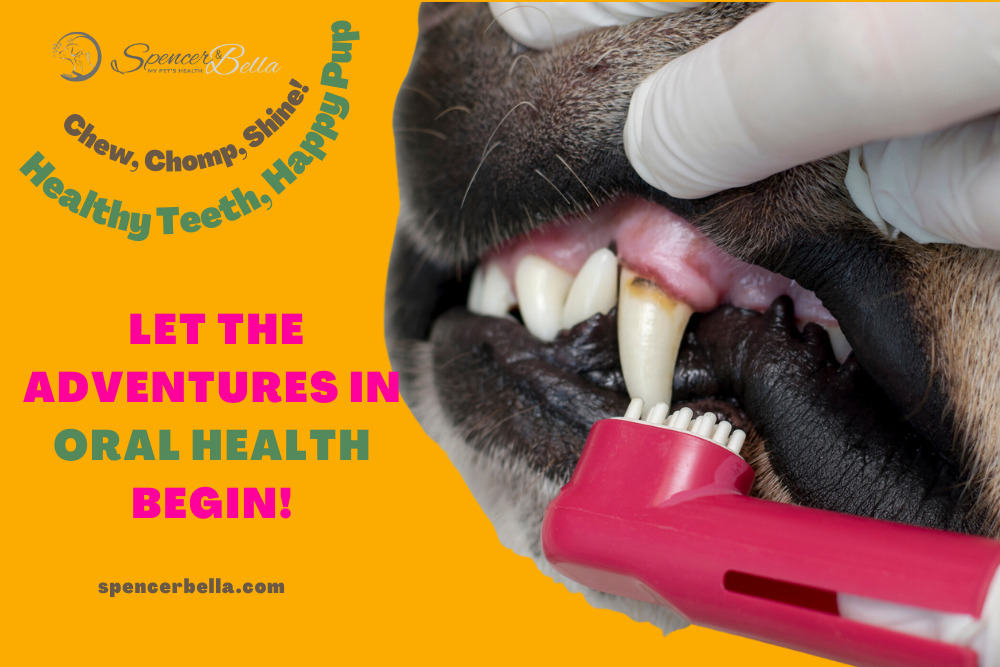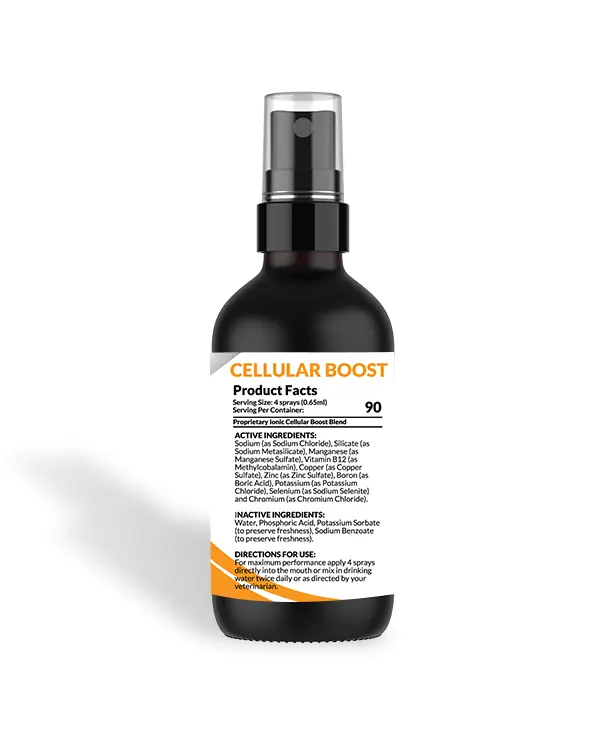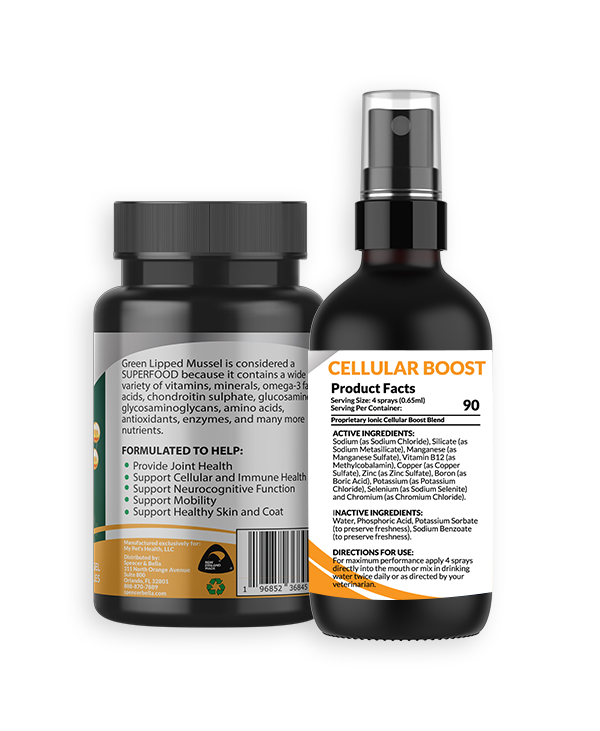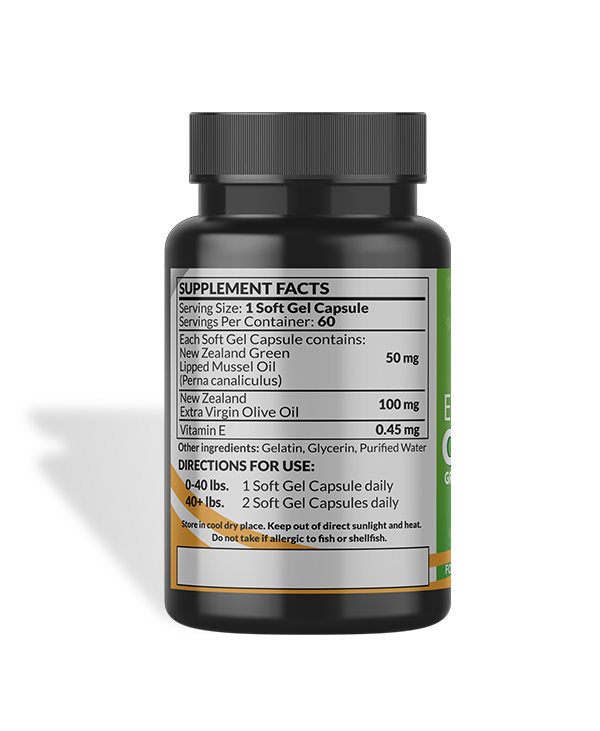Promoting your canine companion’s overall well-being involves prioritizing proper dental care. Just like humans, dogs can experience dental challenges that result in discomfort and potential health complications. In this comprehensive guide, we thoroughly explore the realm of dog teeth health, including dental cleaning techniques and strategies to maintain a vibrant and wholesome smile for your cherished furry friend.
Understanding Dog Dental Anatomy:
Before embarking on the journey of dental care, it is vital to grasp the intricacies of a dog’s dental anatomy. With 42 teeth encompassing incisors, canines, premolars, and molars, their dental arrangement can differ by breed. This comprehension of their dental configuration forms the foundation for recognizing potential concerns.
The Importance of Dog Teeth Health:
Healthy teeth are crucial for dogs to enjoy their favorite activities, such as chewing toys, playing fetch, and enjoying meals. Neglecting your dog’s dental health can lead to pain, bad breath, and even infections that may affect their quality of life.
Starting Early: When to Begin Cleaning Your Dog’s Teeth
The journey toward maintaining healthy teeth begins early in your dog’s life. Puppies start developing their baby teeth around three weeks of age, and by the time they are six months old, they usually have their full set of adult teeth. It’s recommended to start introducing oral hygiene practices as soon as their baby teeth emerge.
During this phase of your puppy’s life, their gums may be sensitive, so it is crucial to be gentle when you first begin introducing them to dental care. You can use a soft cloth or a finger brush to gently rub their gums. This helps them get used to the sensation and sets the foundation for more thorough teeth cleaning as they grow older. Gradually, as their adult teeth start coming in, you can transition to using a dog-specific toothbrush and toothpaste.
Starting early has several advantages. Not only does it familiarize your pup with the concept of teeth cleaning, but it also helps prevent the buildup of plaque and tartar from the very beginning. Additionally, this early introduction makes the entire process less stressful for both you and your dog. They will come to associate dental care with positive experiences, making it easier to establish a lifelong routine of good oral hygiene.
By initiating dental care during the puppy stage, you are setting your dog up for a lifetime of healthy teeth and gums. It is important to note that the puppy phase is also the perfect time to establish other aspects of dental hygiene, such as regular dental check-ups with your veterinarian. These early steps create a solid foundation for your dog’s dental well-being and contribute to their overall health and happiness as they grow into adulthood.
Common Dental Issues in Dogs:
Plaque and Tartar Buildup:
Without proper care, plaque can accumulate on your dog’s teeth, hardening into tartar. This can lead to gum inflammation (gingivitis) and more severe periodontal disease.
Gingivitis and Periodontal Disease:
Untreated gingivitis can progress to periodontal disease, which involves the loss of supportive structures around the teeth. This can cause pain, tooth mobility, and even tooth loss.
Bad Breath:
Foul breath is often a sign of dental issues in dogs. While some doggy breath is normal, persistent bad breath could indicate an underlying problem.
Oral Tumors and Abscesses:
Regular dental checks can help identify unusual growths or abscesses that might require medical attention.
Preventing Dental Problems and Maintaining Good Oral Hygiene:
To ensure your dog’s oral health is at its best, adopt a proactive approach that combines preventive measures and consistent oral care practices. Here is how you can maintain your dog’s dental well-being:
- Regular Dental Exams: Schedule routine dental check-ups with your veterinarian. These appointments are crucial for early detection and addressing any emerging dental concerns.
- Dog Teeth Cleaning at Home: Implement a regular brushing routine for your dog’s teeth. Begin gradually to acclimate your dog to the process, using dog-specific toothbrushes and toothpaste. Regular brushing significantly reduces plaque buildup and maintains gum health.
- Dental Chews, Toys, and Treats: Incorporate dental-focused chews, toys, and treats into your dog’s routine. These products are designed to mechanically clean teeth while providing enjoyable activities for your dog.
- Healthy Diet: Provide your dog with a balanced and nutritious diet. A proper diet supports not only their overall health but also contributes to strong teeth and gums.
- Professional Check-ups: Schedule regular dental check-ups, ideally on an annual basis. These appointments allow your veterinarian to assess your dog’s oral health comprehensively and address any potential issues before they escalate.
By combining preventive practices and effective oral care routines, you are setting the foundation for a lifetime of healthy teeth and gums for your beloved canine companion.
Professional Dental Cleaning:
While diligently maintaining your dog’s dental hygiene at home is crucial, there are instances when professional intervention becomes imperative. Professional dental cleanings are a vital aspect of your dog’s overall oral care regimen, as they are equipped to tackle more stubborn tartar buildup and address underlying issues that might not be apparent during routine home care.
During a professional dental cleaning, your dog will receive a thorough examination of their oral cavity, including teeth, gums, and tongue. Dental professionals use specialized tools to remove accumulated tartar and plaque from all tooth surfaces, including those harder-to-reach areas that are challenging to address through brushing alone. This meticulous removal of tartar is essential because it not only contributes to fresher breath but also prevents the progression of dental issues that could lead to discomfort and pain.
For some dogs, the idea of undergoing dental cleaning under general anesthesia might raise concerns due to potential health risks or sensitivities. In such cases, there is a promising alternative: non-anesthetic dental cleanings. Some veterinarians and dental professionals offer non-anesthetic options, where your dog is awake throughout the cleaning process. This approach can be particularly suitable for dogs with certain health conditions that make anesthesia risky.
Non-anesthetic dental cleanings
Non-anesthetic dental cleanings involve scaling and polishing your dog’s teeth while they are conscious. While they may not be as comprehensive as full dental cleanings performed under anesthesia, they can still contribute to maintaining dental health by addressing visible tartar and helping to prevent further buildup.
It is important to note that the choice between anesthetic and non-anesthetic dental cleanings should be based on your dog’s individual needs, health status, and the recommendations of your veterinarian. Regardless of the method chosen, regular professional dental cleanings are an essential component of a well-rounded dental care plan that ensures your canine companion enjoys a lifetime of healthy smiles and optimal oral well-being.
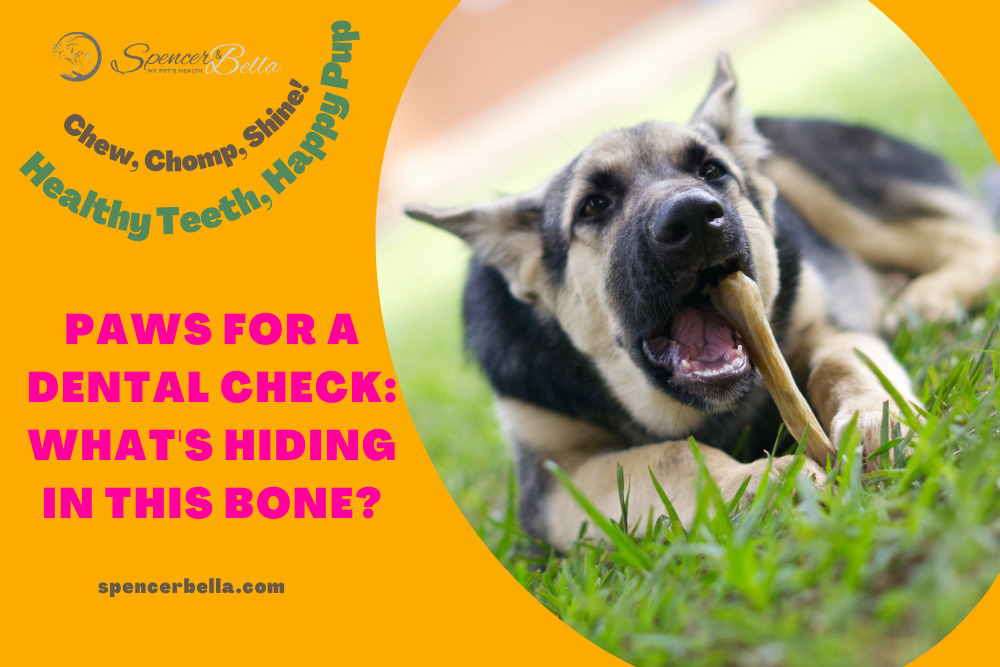
Dog teeth cleaning cost:
The cost of dog dental cleaning can vary based on factors such as location, clinic, and the extent of the procedure. While professional cleanings may incur a higher upfront cost, they can save you money in the long run by preventing costly dental issues.
Dog Teeth Cleaning Without Anesthesia:
Non-anesthetic dental cleanings have gained popularity as a safer alternative for dogs that cannot undergo anesthesia due to health concerns. These cleanings involve scaling and polishing the teeth while your dog is awake. I have seen a local company advertising mobile teeth cleaning services without anesthesia, and the reviews have all been positive, highlighting the effectiveness and comfort of this approach for maintaining your dog’s dental health. If your dog has specific health issues that prevent them from being anesthetized, this non-anesthetic option could be a beneficial solution to explore. However, always consult your veterinarian before making any decisions regarding your dog’s dental care.
The Role of Dog Food in Dental Health:
Yes, the type of dog food your furry friend consumes can indeed influence their dental health. A balanced and nutritious diet contributes to overall well-being, including their oral hygiene. Opting for high-quality dog food that is specially formulated to promote dental health can be beneficial.
Certain dog foods are designed to help reduce tartar and plaque buildup. They often have a specific texture or formulation that encourages chewing, which in turn can help mechanically clean teeth as your dog eats. These dental-focused dog foods might include ingredients that support gum health and freshen breath.
On the other hand, some lower-quality dog foods with high levels of sugars, fillers, and artificial additives can potentially contribute to dental problems. Sugars, for example, can provide a breeding ground for harmful bacteria in the mouth, leading to plaque formation and tooth decay.
Ultimately, your choice of dog food can impact your pet’s dental health. It is a good idea to consult your veterinarian to determine the most suitable diet for your dog’s specific needs, taking into consideration their age, breed, size, and any existing dental concerns. Remember that while dental-friendly dog food can be helpful, it should be part of a comprehensive oral care routine that also includes regular teeth brushing, professional cleanings, and appropriate chew toys.
The Benefits of Raw Bones for Self-Cleaning Your Dog’s Teeth
Recently, I gave both Harley and Sasha 6-inch raw beef bones, and I was amazed at how quickly tartar was removed from their teeth. Raw bones have long been celebrated as a natural and effective way to help keep your dog’s teeth clean and healthy. While it is important to exercise caution and choose the right bones for your dog’s size and chewing habits, incorporating raw bones into your dog’s diet can offer several benefits for their dental health.
Natural Teeth Cleaning:
Chewing on raw bones provides a natural way for dogs to clean their teeth. The abrasive texture of bones helps remove plaque and tartar buildup from the tooth surfaces, promoting better oral hygiene.
Gum Stimulation:
Gnawing on bones also stimulates the gums and helps maintain good gum health. Healthy gums are essential for overall dental well-being, as gum disease can lead to tooth loss and other health issues.
Jaw Exercise:
Chewing on bones provides a workout for your dog’s jaw muscles. This not only helps strengthen their jaw but can also contribute to better jaw alignment and overall oral health.
Mental Stimulation:
Chewing is a natural instinct for dogs, and providing them with appropriate items to chew on, such as raw bones, can help prevent boredom and provide mental stimulation.
Nutritional Benefits:
Raw bones can also be a source of essential nutrients, including calcium and phosphorus, which are important for maintaining strong teeth and bones.
Reduced Plaque and Tartar:
Regular chewing on raw bones can help reduce the buildup of plaque and tartar on your dog’s teeth. This can lead to fresher breath and a reduced risk of dental issues.
Promotes Healthy Saliva:
Chewing on bones promotes the production of saliva, which contains enzymes that help break down food particles and maintain a healthier oral environment.
Natural Behavior:
Chewing on bones mimics a natural behavior for dogs, allowing them to engage in an activity they would naturally do in the wild.
Bonding Time:
Giving your dog a raw bone to chew on can also be a bonding experience between you and your furry friend. It is a time for them to enjoy a treat while spending quality time with you.
When considering incorporating raw bones into your dog’s diet, it is important to choose appropriate bones that are safe for your dog’s size, age, and chewing style. Always supervise your dog while they are chewing, and if you have any concerns about your dog’s dental health or their suitability for raw bones, consult with your veterinarian. Raw bones, when introduced responsibly, can offer a natural and beneficial way to support your dog’s dental care regimen.
Health Risks of Poor Dental Hygiene in Dogs: Beyond the Mouth
Poor dental health in dogs can lead to a range of health risks and complications that extend beyond the mouth. Some of the notable health issues caused by bad teeth include:
Gum Disease:
Accumulated plaque and tartar can lead to gingivitis, a common gum disease characterized by inflammation, redness, and bleeding. If left untreated, it can progress to periodontitis, which can cause pain, tooth loss, and even bone damage.
Tooth Decay:
Just like humans, dogs can experience cavities. Untreated tooth decay can cause pain, discomfort, and potential infections.
Halitosis (Bad Breath):
Bad breath is often an early sign of dental problems. The odor results from the buildup of bacteria in the mouth and can indicate underlying issues.
Pain and Discomfort:
Infected or decaying teeth can cause chronic pain and discomfort for dogs. This pain can affect their appetite, mood, and overall quality of life.
Infections:
Oral infections can spread to other parts of the body, including the bloodstream, heart, and kidneys, leading to systemic health issues.
Difficulty Eating:
Painful teeth and gums can make chewing and eating difficult for dogs, leading to weight loss, malnutrition, and a decrease in energy levels.
Organ Damage:
The bacteria from dental infections can enter the bloodstream and affect vital organs like the heart, liver, and kidneys, potentially causing serious health problems.
Abscesses:
Untreated infections in the mouth can lead to the formation of abscesses, which are pockets of pus. Abscesses can be painful and require medical intervention.
Behavioral Changes:
Dogs in pain often exhibit changes in behavior, such as increased irritability, aggression, or withdrawal.
Compromised Immune System:
Chronic dental infections can weaken the immune system, making dogs more susceptible to other illnesses.
To safeguard your dog’s overall health and well-being, prioritizing their dental care is essential. Regular dental check-ups, proper teeth cleaning, and prompt attention to any signs of dental problems can help mitigate these health risks and ensure a happy, healthy life for your furry friend.
Conclusion:
Prioritizing your dog’s dental health is a key aspect of responsible pet ownership. By following proper dental care practices, you can ensure your furry friend maintains a healthy smile, preventing discomfort and potential health problems. Regular at-home care, professional cleanings when needed, and a well-balanced diet are the foundation for your dog’s vibrant dental health and overall well-being.
Also, read our blog about the benefits of Cellular BOOST daily for your cats and dogs.
-
Cellular BOOST
$35.00 - or Subscribe and Save 10% -
Cellular BOOST & Essential OMEGAS Bundle
$84.00 - or Subscribe and Save 10% -
Essential OMEGAS
$49.00 - or Subscribe and Save 10%
FAQ
Q: How important is dog dental health?
A: Prioritizing your dog’s dental health is paramount for their overall wellness. Overlooking dental care can result in discomfort, infections, and a diminished quality of life.
Q: What are some common dental issues in dogs?
A: Common dental problems include plaque and tartar buildup, gingivitis, bad breath, oral tumors, and abscesses.
Q: How Can You Maintain Healthy Dog Teeth?
A: Maintaining healthy dog teeth involves a combination of regular dental care practices. These include establishing a consistent brushing routine using dog-specific toothbrushes and toothpaste, gradually increasing the frequency of brushing as your dog becomes accustomed to it. Additionally, providing dental chews, toys, and considering professional dental cleanings when necessary can contribute to ensuring your dog’s dental health. A balanced diet and regular dental check-ups with your veterinarian are also crucial for maintaining healthy dog teeth in the long run.
Q: What Is Tartar on Dog Teeth?
A: Tartar on dog teeth, also known as dental calculus, is a hard, yellowish buildup of mineralized plaque that forms on the teeth. It can lead to various dental problems, including gum disease, bad breath, and potential tooth loss if not addressed through proper dental care and cleaning. Regular brushing and professional cleanings are essential to prevent and manage tartar buildup on dog teeth.
Q: How often should I brush my dog’s teeth?
A: Dental cleaning for dogs should be done 2-3 times a week. Start gradually and increase frequency as your dog becomes accustomed to it.
Q: Can I use human toothpaste for my dog’s teeth?
A: No, human toothpaste can be harmful to dogs. Use toothpaste specially formulated for dogs.
Q: Are dental chews and toys effective in cleaning teeth?
A: Yes, dental chews and toys can help mechanically clean your dog’s teeth while providing a tasty treat.
Q:Canine Fresh Dental Chews:
A: Canine Fresh dental chews are specially designed treats that can help support your dog’s dental health. These chews are formulated to promote chewing, which can aid in mechanically removing plaque and tartar from your dog’s teeth. The chewing action also stimulates saliva production, which helps in naturally cleaning the teeth and maintaining oral hygiene. Canine Fresh dental chews come in various sizes and flavors to suit different dogs’ preferences, making them a convenient and enjoyable way to contribute to your dog’s dental care routine. However, while dental chews can be beneficial, they should be used as part of a comprehensive dental care plan that includes regular brushing, professional cleanings, and other dental hygiene practices. Always consult with your veterinarian before introducing new products into your dog’s routine to ensure they are appropriate for your pet’s specific needs.
Q: How often should I schedule professional dental cleanings for my dog?
A: Annual professional dental check-ups are recommended to catch issues early and prevent more severe problems.
Q: What is non-anesthetic dental cleaning?
A: Non-anesthetic dental cleanings are performed without anesthesia and can be a safer option for dogs with health concerns.
Q: How much does dog dental cleaning cost?
A: The cost can vary based on location, clinic, and the extent of the procedure. It is an investment in your dog’s long-term health.
Q: Can I prevent dental issues without professional cleanings?
A: While professional cleanings are beneficial, regular at-home care, proper brushing, and a healthy diet can significantly reduce the risk of dental problems.
Q: What Is the Best Way to Clean Dogs Teeth?
A: The best way to clean dogs’ teeth and promote dog tartar removal is by establishing a regular brushing routine using dog-specific toothbrushes and toothpaste. Gradually increase the frequency of brushing as your dog becomes accustomed to it. Additionally, offering dental chews, toys, and considering professional dental cleanings when necessary can contribute to ensuring your dog’s dental health. These practices, along with using a dental formula for dogs, can help maintain their oral hygiene and overall well-being.
Q: How do you determine the size of the raw bone to give a dog?
A: Determining the appropriate size of a raw bone for your dog is crucial to ensure their safety and enjoyment. One commonly recommended guideline is to choose a bone that is approximately twice the size of your dog’s muzzle. This size estimation helps prevent the risk of choking or swallowing large pieces. Additionally, consider your dog’s chewing habits and preferences—some dogs may prefer larger bones, while others may be content with smaller ones. If you are uncertain, consulting your veterinarian can provide personalized guidance based on your dog’s breed, size, and chewing behavior. Remember, it is always better to select a slightly larger bone to minimize any potential hazards.
Q: Are There Specific Water Additives for Dog Oral Care?
A: Yes, there are water additives designed to promote Dog Teeth Health. These additives are typically mixed with your dog’s drinking water and can help reduce plaque and tartar buildup, freshen breath. Moreover, these support overall dental hygiene. Water additives often contain ingredients like enzymes, antimicrobial agents, and natural breath fresheners. While they can be a convenient addition to your dog’s routine, it is important to note that they should not replace regular brushing and professional dental care. Consult your veterinarian before introducing any new products to your dog’s oral care regimen to ensure they are safe and suitable for your pet’s specific needs.


